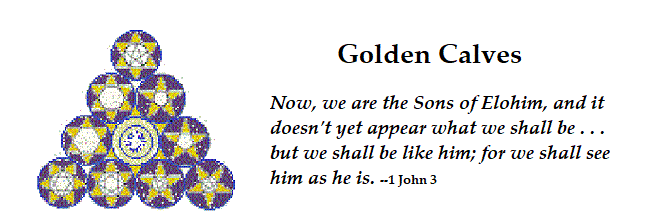
God is "Spirit." From both the Hebrew and the Greek canons, the most common word translated as "spirit" has other, less nebulous definitions: most notably, "breath": God is Breath. Not "breathing," breath is the reason we breath: we breathe the Breath; for the Breath of Life hides behind the interplay of the inhale and the exhale, supporting life in creatures that breathe. As the children of God, we breathe in God's Life, his Essence; and we exhale the savor of our utilizations of that Life.
God's jealousy, that we should focus on none other, is not petty. The Life Breath is without rival in each of us, and HaShem is jealous of our attention not only for our survival, but for the quality of the lives we lead. To focus on breath in the throes of whatever is happening in the moments of our lives enriches the experience of Life and empowers both body and mind. Focus on Breath is congruent with the way of Zen. Elohim, the gods, the faces/attribues of the Holy One of Y'sharAL. HaShem is jealous of our attention because of love, not because of any need for worship, but because cognizant utilization of the Life Breath allows us to share the fullness of God's endless bounty. In whatsoever we do, we should remember the Breath that makes action and reaction possible.
We are called to worship, not in awe of God's power, but in answer to his love; for worship is the spontaneous response of the beloved to love's Source. Worship requires no words, no piety. It requires attention. Worship is the natural response of a living soul that has discovered the Faces of HaShem written upon his own faces. To focus on breath trains the mind to measure God's attributes, expressions, impulses, and responses in all that we do; and it gives us ears to hear and eyes to see. We are not to fear, therefore; for God is no stranger, but is the intimate Presence within each of us. It's not possible to worship God if we are afraid of God, imagining deity to be some distant, outward reality. The thundering voice of Sinai is the schoolmaster that prepares us to receive and to hear and to understand the still, small voice that provides counsel in our hearts.
God's work is a strange work. He speaks to sinner ("once") and saint (yes, "twice") by the same Word; and we fail to perceive the message so long as we apply understandings outwardly. The Hebrew and the Greek canons agree that both sinners and saints are guilty of sin--of error. The difference between the called and the chosen, is acknowledgment. Walking humbly with the Breath, we can perceive sinner and saint as one. We are to consider the sayings concerning the covenant between Heaven and Earth, not in judgment of others or ourselves, but as words that will lead to our understanding of the righteousness of God, who is lifting the Creation he began in us to the perfection he envisioned from the beginning.
Beyond being petty, to question God's righteousness in the spirit of accusation is unnecessary and counterproductive. Whatever our response to our station in life, we all want to know what God is doing with us. Whatever we might think of it, we arise each morning in the embrace of God's open arms or struggles against the outstretched hand. Each day belongs to HaShem, and we are to rejoice and be glad; for our lives are not our own.
Any definition of God by means of words, sacred geometry, or artistic portrayal is idolatrous. Every isolated thought we have about God is idolatrous. The Breath is infinite and elsewhere. Where is the house we might build unto God? The words, that might be adequate to convey our understandings? To define God is to cast our gold (knowledge) and silver (understandings) into the fires of our lives to chase after idols. It is the interplay of Spirit and spirit-- of God's Face upon our faces-- that makes knowledge of his righteousness possible. It is therefore written, "Take my yoke upon you, and learn of me; for I am meek, and lowly of heart." God does not intrude. Although he is the Life that is in us and there is no other, he knocks patiently upon the doors of our hearts from within our hearts, awaiting invitation to join his counsel with our thoughts, so that we can reason together. To sense his Presence within and to call upon that Presence to arise is true worship and will lead to kundalini, the yoga of seeing God as he is, not as we imagine him to be.
|
site |
Three Roads |
book |